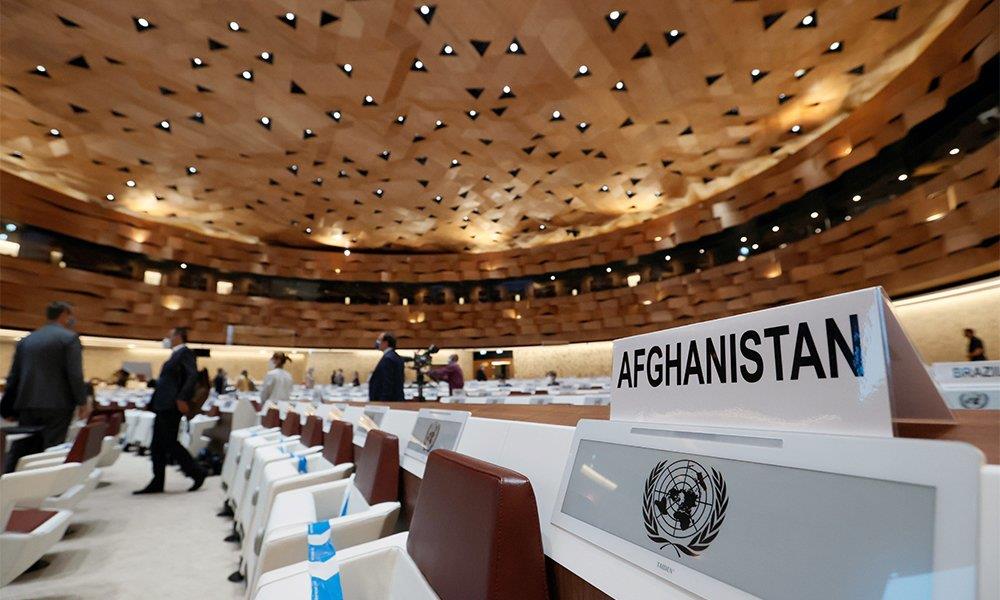
UN Rapporteur: Excluding Afghan Women From Doha Talks Has High Costs
A general view ahead of an aid conference for Afghanistan at the United Nations in Geneva, Switzerland, September 13, 2021. REUTERS/Denis Balibouse
The UN's Special Rapporteur on Human Rights for Afghanistan has stated that if women are excluded from the Doha talks due to the Taliban's presence, the cost of such exclusion would be very significant.
In an article published in The New York Times, Richard Benett argued against allowing the Taliban to leverage their threat of non-participation in negotiations to dictate terms.
The UN's special rapporteur, in his article on Friday, criticized assessing the success of the Doha talks solely based on the Taliban's participation.
He highlighted that focusing on politically neutral issues in the third round of Doha talks was designed to entice the Taliban to the negotiation table.
He emphasized that respect for human rights, especially women's rights, must be a precondition for any interaction with the Taliban.
Benett also referred to an independent assessment requested by the Security Council last year, recommending that any roadmap for Afghanistan's reintegration into the international community must include measurable human rights advancements.
The UN special rapporteur emphasized that the UN does not recognize the Taliban as a government and should not treat them as such.
He pointed out that historical precedent shows the non-participation of all Afghans in political processes undermines the credibility and sustainability of such talks.
Richard Benett mentioned that although some civil society members and women's groups will participate in sideline sessions“under significant external pressure,” their inclusion should have been considered from the outset.
In his article, Benett argued that leaving Afghan women activists out simply because the global community finds Afghanistan too costly to deal with is easy but would greatly harm those women and girls who defy it.
Benett wrote,“We are obliged to respond to their courage by increasing protection, support, and solidarity.”
The UN's special human rights rapporteur added that next week, the third international special representatives meeting for Afghanistan in Doha will focus on the country's future political path.
Benett stated,“Following talks with the Taliban, the agenda of the session will focus on drug trafficking and aiding the private sector.” He added that human rights or women's issues will not be discussed, and women or civil society representatives will not participate.
According to him, if these exclusions are the cost of the Taliban's presence in Doha, the price is very high.
Richard Benett noted in his article the Taliban's anti-women policies and the deprivation of women from education and work as a consequence of these policies.
Richard Benett highlighted Afghan women's early characterization of Taliban policies as sexual apartheid in the 1990s. He emphasized the need for international law to criminalize these policies, stating that they not only harm present Afghan generations but also perpetuate gender dehumanization for future ones.
ShareFacebook Twitter WhatsApp Email Print Telegram
Legal Disclaimer:
MENAFN provides the
information “as is” without warranty of any kind. We do not accept
any responsibility or liability for the accuracy, content, images,
videos, licenses, completeness, legality, or reliability of the information
contained in this article. If you have any complaints or copyright
issues related to this article, kindly contact the provider above.


















Comments
No comment